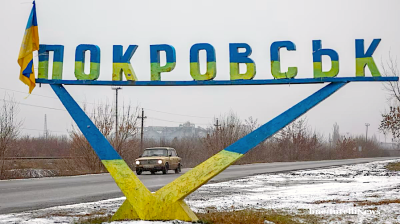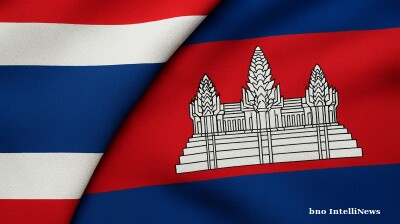Oil majors face $4.4bn in liabilities under Nigeria's tightened decommissioning rules, says NUPRC chief

Nigeria’s upstream regulator NUPRC has cleared 94 oilfield decommissioning and abandonment plans worth $4.42bn since April 2023, arising from all Field Development Plans (FDPs) submitted within this period, its chief executive told an industry forum in Lagos – underscoring the tightening of rules to safeguard state finances.
According to CEO Gbenga Komolafe, the obligations will be paid gradually over the life of the fields into escrow accounts, in line with the 2021 Petroleum Industry Act (PIA).
About $400mn has already been secured through letters of credit and escrow, he said. A new framework on domiciling escrow accounts has been agreed with international oil companies (IOCs) and is awaiting approval by the Ministry of Justice.
Komolafe – in prepared remarks to the Nigerian Extractive Industries Transparency Initiative (NEITI) Companies Forum, delivered by a deputy and summarised in an NUPRC release – said that the stricter rules for asset transfers also aim to prevent environmental liabilities from falling on the state.
NUPRC is applying lessons from costly global divestment cases, he said, citing overseas examples where costs escalated (including £27bn projected in the North Sea by 2032, more than $9bn in the Gulf of Mexico, CAD30bn–70bn for 97,000 inactive wells in Alberta, and AUD200mn in liabilities left after Northern Oil & Gas Australia’s collapse in 2019).
“Without a robust and enforceable framework for abandonment and decommissioning, divestment transitions can create lasting financial and environmental burdens,” Komolafe said.
“Nigeria is not immune to this challenge, and if we are to avert costly mistakes. It is precisely to avoid this outcome that Nigeria, through the Petroleum Industry Act and subsequent regulatory actions, has taken bold and decisive steps.”
Komolafe cited the biggest recent Nigerian divestments approved under stricter frameworks that require upfront financial guarantees. The specific companies he named include:
TotalEnergies — still operating with partial divestments. In May 2025, TotalEnergies agreed to sell its 12.5% non-operated interest in the Bonga field (OML 118) to Shell for $510mn; the deal is subject to regulatory approvals and expected to close by the end of 2025, according to Reuters and company statements.
Shell Petroleum Development Company of Nigeria Ltd. (SPDC, Shell plc) — exit completed. Shell said in March 2025 that it had closed the $2.8bn sale of its onshore business to Renaissance Africa Energy
Equinor ASA — exit completed. Equinor confirmed in December 2024 that it had sold its entire Nigerian business, including its Agbami field interest (OML 128), to Chappal Energies
ExxonMobil (Mobil Producing Nigeria Unlimited) — exit completed. Seplat Energy announced in December 2024 it had closed its $1.28bn acquisition of ExxonMobil’s shallow-water assets, renaming the unit Seplat Energy Producing Nigeria Unlimited.
Eni (Nigerian Agip Oil Company Ltd.) — exit completed. Eni said in August 2024 that it had closed the sale of NAOC to Oando Plc, though it retained a 5% stake in the Shell-operated SPDC joint venture.
News

Russia claims to surround Pokrovsk
Russia’s chief of the general staff Valery Gerasimov triumphantly reported to Putin that 31 Ukrainian battalions have been encircled in Pokrovsk and 18 battalions in Kupyansk, the hottest spot in the war.
.jpg)
Brazil and US to start urgent tariff negotiations after Trump-Lula meeting
Brazilian President Luiz Inácio Lula da Silva and US President Donald Trump have agreed to start immediate negotiations on tariffs and sanctions imposed by Washington, following a meeting in Malaysia that sought to ease trade tensions.

Cambodia and Thailand agree peace deal
Thailand and Cambodia have agreed a peace deal to mark the end of a conflict earlier in the year as Cambodian Prime Minister Hun Manet and Thai Prime Minister Anutin Charnvirakul attended a signing ceremony overseen by US President Donald Trump.

Trump would like to meet North Korea’s Kim Jong Un during Asia trip
The prospect of renewed diplomacy between Washington and Pyongyang has lingered since Kim’s remarks last month suggesting a willingness to speak to the outside world.



